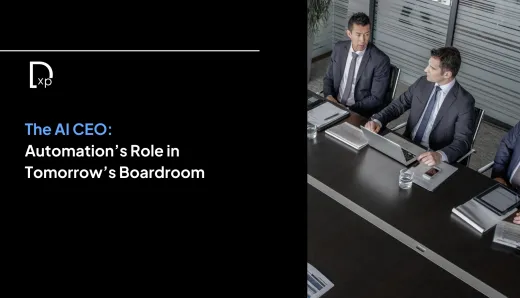Exploring Generative AI: Use Cases That Are Changing Industries Overnight

Introduction: The Transformative Power of Generative AI
Generative AI is rapidly emerging as a game-changer across various industries, reshaping how businesses operate and innovate. By harnessing the power of algorithms that can create content, design products, and even simulate complex scenarios, generative AI is enabling organizations to achieve remarkable efficiencies and breakthroughs. As we explore the diverse use cases of generative AI, it becomes clear that this technology is not just a trend; it’s a fundamental shift in how industries approach creativity, problem-solving, and customer engagement.
Generative AI in Healthcare: Revolutionizing Patient Care
The healthcare sector is witnessing a significant transformation thanks to generative AI. One of the most compelling use cases is in drug development. For instance, companies like Insilico Medicine are utilizing generative AI to create new drug molecules and optimize existing ones. This innovative approach has enabled them to develop a new drug in just 46 days—an astonishing feat compared to traditional methods that can take years.
Moreover, generative AI is enhancing diagnostic capabilities. Organizations like IBM Watson Health and Tempus are leveraging AI tools to analyze vast amounts of medical data and generate personalized treatment plans for patients. This ability to uncover hidden patterns not only improves therapeutic effectiveness but also paves the way for more tailored healthcare solutions.
Another noteworthy application is found at the Mayo Clinic, where generative AI collaborates with Google Health to analyze medical images. The technology can interpret complex scans with high accuracy, allowing for earlier disease detection—especially in cases where human radiologists might overlook subtle signs.
Generative AI in Manufacturing: Optimizing Production Processes
In the manufacturing industry, generative AI is streamlining operations and enhancing product quality. Companies like Bosch are employing predictive analytics powered by generative AI to analyze production line data and foresee equipment failures. This proactive approach enables timely preventive maintenance, ultimately increasing production efficiency and reducing costs.
Furthermore, manufacturers such as BMW are utilizing generative AI to optimize their production processes. By automating tasks like resource allocation and quality control, they can significantly boost productivity while minimizing errors. Similarly, Foxconn leverages generative AI to identify defects on production lines—detecting issues that might be invisible to the human eye.
Generative AI also plays a crucial role in product design. For instance, General Electric (GE) has adopted this technology to create more efficient aircraft designs. One project resulted in a 25% reduction in the weight of fuel nozzles without compromising reliability—a testament to how generative AI can drive innovation in manufacturing.
Generative AI in Retail: Enhancing Customer Experience
The retail sector is experiencing a renaissance fueled by generative AI technologies. One prominent use case involves personalized customer service through AI chatbots. Retailers like H&M have implemented chatbots that assist customers in finding products, providing recommendations based on individual preferences, and answering queries about item availability.
Moreover, Alibaba employs generative AI to automatically generate product descriptions on its platforms, enhancing conversion rates by helping customers understand product attributes better. This capability not only saves time but also optimizes digital advertising campaigns through targeted messaging.
Zara utilizes generative AI for demand forecasting and supply chain optimization. By accurately predicting customer preferences and trends, Zara can ensure timely stock replenishment of popular items while minimizing unsold inventory—a crucial advantage in today’s fast-paced retail environment.
Generative AI in Finance: Transforming Risk Assessment
In finance, generative AI is revolutionizing risk assessment and decision-making processes. Companies like Zurich Insurance harness this technology to analyze risk factors more accurately, enabling them to tailor insurance policies based on individual customer profiles. This level of customization enhances customer satisfaction while optimizing underwriting decisions.
Additionally, firms such as AIG utilize generative AI to simulate various insurance product scenarios, testing their viability in real-time market conditions. This agile approach allows insurers to innovate rapidly while aligning offerings with emerging customer needs.
Generative AI also plays a vital role in fraud detection within the insurance industry. Lemonade Insurance has integrated an AI-based solution that automates claim assessments, significantly reducing losses and ensuring accurate payouts—demonstrating how technology can enhance operational efficiency while maintaining customer trust.
Generative AI in Telecommunications: Streamlining Operations
The telecommunications industry is leveraging generative AI to improve operational efficiency and customer engagement. Companies like Vodafone have implemented chatbots capable of handling customer requests autonomously—reducing the workload on human agents while providing instant support for common inquiries.
Moreover, AT&T employs predictive analytics powered by generative AI to analyze user data patterns and detect anomalies indicative of fraud or network issues. This proactive monitoring allows telecom providers to respond swiftly to potential threats, ensuring network integrity and customer satisfaction.
Generative AI also aids in optimizing marketing strategies within telecom companies. For example, Orange uses this technology to generate tailored advertising materials based on customer behavior—enabling more effective outreach efforts that resonate with specific audience segments.
Generative AI in Supply Chain Management: Enhancing Efficiency
Generative AI is making significant strides in supply chain management by optimizing logistics and forecasting demand more accurately. Walmart utilizes this technology to analyze sales data alongside external factors such as weather patterns and market shifts for demand forecasting. This predictive capability helps Walmart maintain optimal inventory levels while reducing stockouts or overstock situations.
Similarly, Amazon employs generative AI algorithms to predict consumer purchasing patterns—allowing for timely adjustments in inventory management that enhance operational efficiency.
Logistics companies like UPS and DHL have integrated generative AI into their systems to optimize delivery routes by analyzing complex variables such as traffic conditions and delivery time windows. This results in improved delivery times and reduced operational costs—key factors for maintaining competitiveness in the logistics sector.
Conclusion: Embracing the Future with Generative AI
As we explore the myriad use cases of generative AI across various industries, it becomes evident that this technology is not merely a tool; it’s a catalyst for innovation and transformation. From healthcare advancements that enhance patient care to manufacturing processes that streamline production efficiency, generative AI is changing industries overnight.
Organizations that embrace generative AI will find themselves at the forefront of their respective fields—driving growth through enhanced creativity, improved decision-making capabilities, and unparalleled operational efficiencies. The future belongs to those who leverage this transformative technology wisely; by understanding its potential and implementing it strategically, businesses can unlock new opportunities that were once thought impossible.




